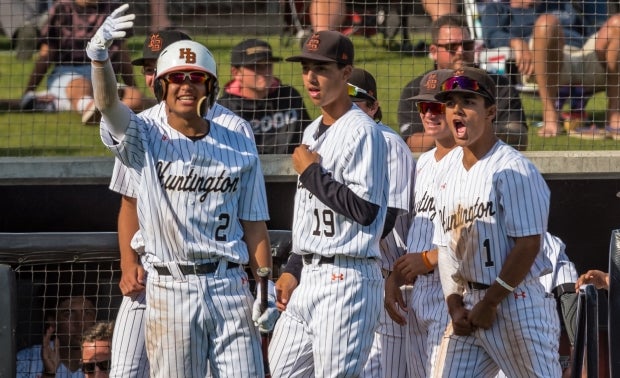I regularly hear from athletes, "I play better when I'm angry."
On the flip side, I'll also hear athletes say, "I got in her head and took her out of her game."
Coaches motivate players by digging into their anger (often against the coaches themselves), but also yell at players for committing unnecessary fouls when upset at an opponent.
What gives?
Are those sentiments compatible with each other? What's the difference between playing with intensity and playing angry? What does intensity really mean? Let's dive in.
- Playing with anger means embracing those familiar feelings of antagonism, hyper-awareness, hot body temperature and more that most associate with the emotion. Like most things, anger is neither inherently good nor bad. The
American Psychological Association's website notes that anger can motivate and facilitate the expression of emotions. It also makes it difficult to think straight.
Playing with intensity engages many of the same feelings as anger. Intensity, too, is neither inherently good nor bad. Playing with intensity increases awareness, body temperature, adrenaline and motivation. It can also lead to mistakes and bad decisions.
At first blush, anger and intensity seem to be cut from the same cloth, or at least made of the same material. However, like the difference between shooting off your fourth finger and shooting off your index finger, the differences are subtle but significant.
- While anger and intensity look alike, they stem from different places. Anger spawns from a desire to right a perceived injustice, including proving someone wrong or responding to a dirty play, among other perceived injustices.
Intensity, on the other hand, comes from the need to succeed, including performing your best and preparing hard.
A player might be angry at an opponent for trash talking or angry at a coach for suggesting the player isn't good enough, or angry at a teammate for not passing them the ball. The anger, then, motivates a player to prove the target of the anger wrong. Conversely, a player may have intensity because they're playing a big game, they set a goal to win every loose ball, or because friends and family are depending on them.

Anger and intensity are cut from the same cloth and both can be positive approaches depending on the person.
Photo by: Terry Jack
- Now that we know the origin of anger and intensity, we need to look at the difference in mentality, specifically, in focus. The focus of an angry player resides with the object of the anger; the focus of an intense player resides with the task at hand.
This is the crucial difference! While both players are competing with a purpose, an angry player can satisfy their anger in multiple ways, including unproductive ways.
Imagine a coach tells a player, "You never work hard enough!" An angered player could respond by saying to themselves, "I'll show coach, I'll work twice as hard as anyone else!" The player could also respond with, "I'll show coach, I'll work half as hard today so coach appreciates what I bring to the table!"
Same comment from the coach, opposite responses. On the other hand, if the coach approaches the situation by telling the team, "The key to winning today is outworking our opponents in x, y and z ways," they encourage intensity. The coach puts the focus on the goal (winning), not on themselves as the object of the anger. The only way to achieve the goal is to play hard, and do your best to win.
- Big
but coming! While I personally like the focus aspect of playing with intensity better, there's no such thing as a universally right answer here. Anger can be an excellent motivator, particularly for athletes who thrive off of it. However, athletes who subscribe to this must take a long look in the mirror and decide whether they're doing more good or harm. Additionally, athletes playing with intensity can be too intense, not intense enough, or just right.
When you're too intense, for example, you're more likely to
succumb to stress than you would otherwise. My advice is to figure out what works best for you, because there's no perfect answer. What motivates you more, anger or intensity? What are you actually focused on? When do you play your best?
Connor Hartley is a mental performance consultant from Tacoma, Washington. He teaches mental skills to athletes, musicians, students and other types of performers, including elite athletes in soccer, basketball and golf. Hartley has a master's degree in mental health counseling with a focus in sport psychology from Boston University and a bachelor's in psychology from Loyola Marymount University. Reach him on Facebook (Hartley Performance) Twitter (@connorhartleySP) or via email at chartley@bu.edu.
